
IKF Research
IKF Forschung
IKF conducts foundational research in areas related to new media, digital transformation, network theory, communication science, organization theory, ethics, leadership, and intercultural communication.
Listed below are some of the publications authored by IKF co-workers.
Informational Pragmatism: Towards a Philosophy of Digital Transformation
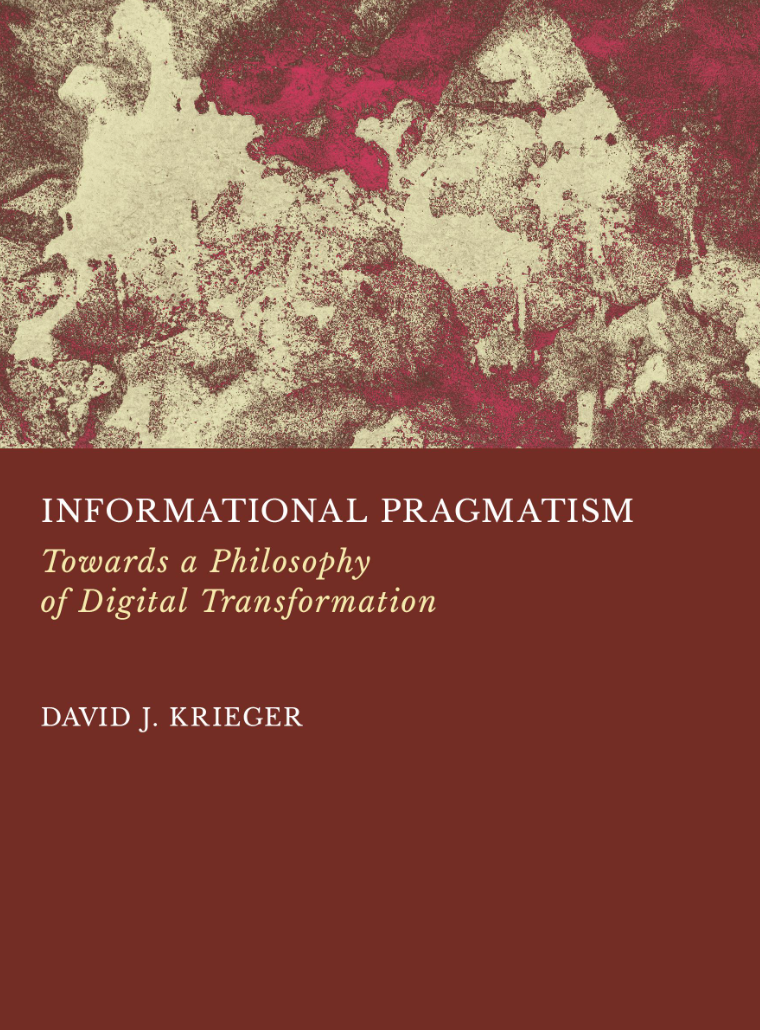
This thought-provoking book explores the philosophical ideas, from antiquity to today, that influence our understanding of the digital transformation that is ushering in a global network society.
Digital transformation is understood as a profoundly philosophical issue, reflecting humanity’s ongoing socio-technical evolution. Traditional philosophical issues such as the meaning of being, the nature of knowing, and the place of the autonomous rational subject in modern thought, are challenged and redefined from the perspective of an informational pragmatism.
The book presents a philosophy of information, based on a critique of neo-pragmatism from the perspective of actor-network theory. A major revision of pragmatism in the form of informational pragmatism is proposed as a philosophy capable of addressing the fundamental questions of the 21st century arising from the emergence of a global network society and the digital transformation.
New Perspectives on AI Alignment, Andréa Belliger and David J. Krieger, Lucerne, 2023
This paper explores the complex challenge of aligning artificial intelligence (AI) with social values and goals. AI alignment is not merely a technical issue but a social one, requiring inputs from various disciplines such as ethics, philosophy, politics, law, economics, and sociology. It also demands a new understanding of AI as a socio-technical network, not a machine, a stand-alone entity. The alignment problem has three levels: technical safety, prevention of misuse, and social integration. These three levels arise from two basic assumptions: AI is a tool in the hands of humans to use for good or evil, or AI is a social partner. It is argued that attempting to align AI to substantive values, norms, and goals is impracticable because of the vagueness, ambiguity, context-dependency, and lack of consensus which characterize any concrete idea of the good. Instead, AI should be considered a socio-technical network, not a bounded entity. After describing typical challenges, goals, and methods of the alignment problem, two new perspectives on AI alignment are proposed: 1) Cooperative Coexistence or Social Integration, and 2) Constitutional AI without Substantive Values. Whereas social integration presupposes AGI and raises issues of the nature of a non-biological intelligence, constitutional AI without substantive values need not assume AGI and focuses on process norms or procedural values applicable for all sociotechnical networks and is, therefore, more realistic at the present moment. The paper highlights the need for continuous revision and updating of AI alignment solutions in response to technical and societal coevolution.
From Systems to Actor-Networks: A Paradigm Shift in the Social Sciences, Andréa Belliger and David J. Krieger, 2023
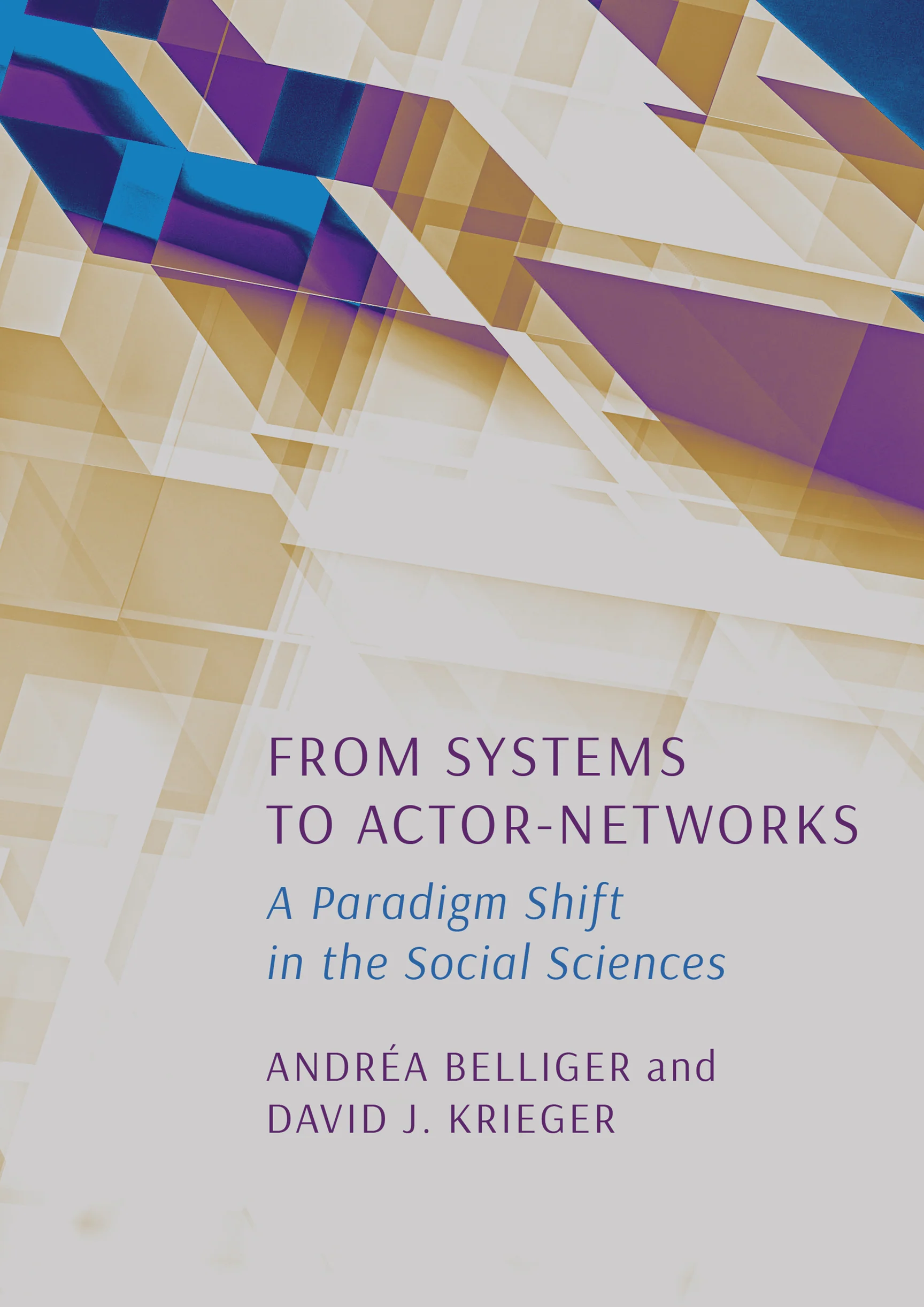
This book documents a paradigm shift, not only in the sciences but also in society. Everywhere in society systems are becoming networks. This implies not only a new understanding of social science but also of society and ourselves. The book describes the systems model based on Luhmann’s theory of social systems and compares this to Latour’s actor-network theory. It argues that present day society cannot be successfully modeled as a system and illustrates the transformation to a global network society by citing many examples from business, education, and healthcare. The authors argue that actor-network theory provides a more comprehensive account of these changes than systems theory. Based on actor-network theory, they propose a theory of the “digital transformation” that is ushering in the global network society.
Although people in all areas talk about systems, adaptive behavior, evolution, complexity, and networks, few know where these concepts come from, and what they mean in the theories they belong to. This book is for all who are concerned with clarifying the often taken-for-granted assumptions and concepts that are implicitly or explicitly derived from systems theory and network theory. It offers an introduction to the work of Luhmann and Latour and a critical and constructive development of these important theories for the 21stcentury.
Short Cuts to Digital Transformation, Andréa Belliger and David J. Krieger, 2023
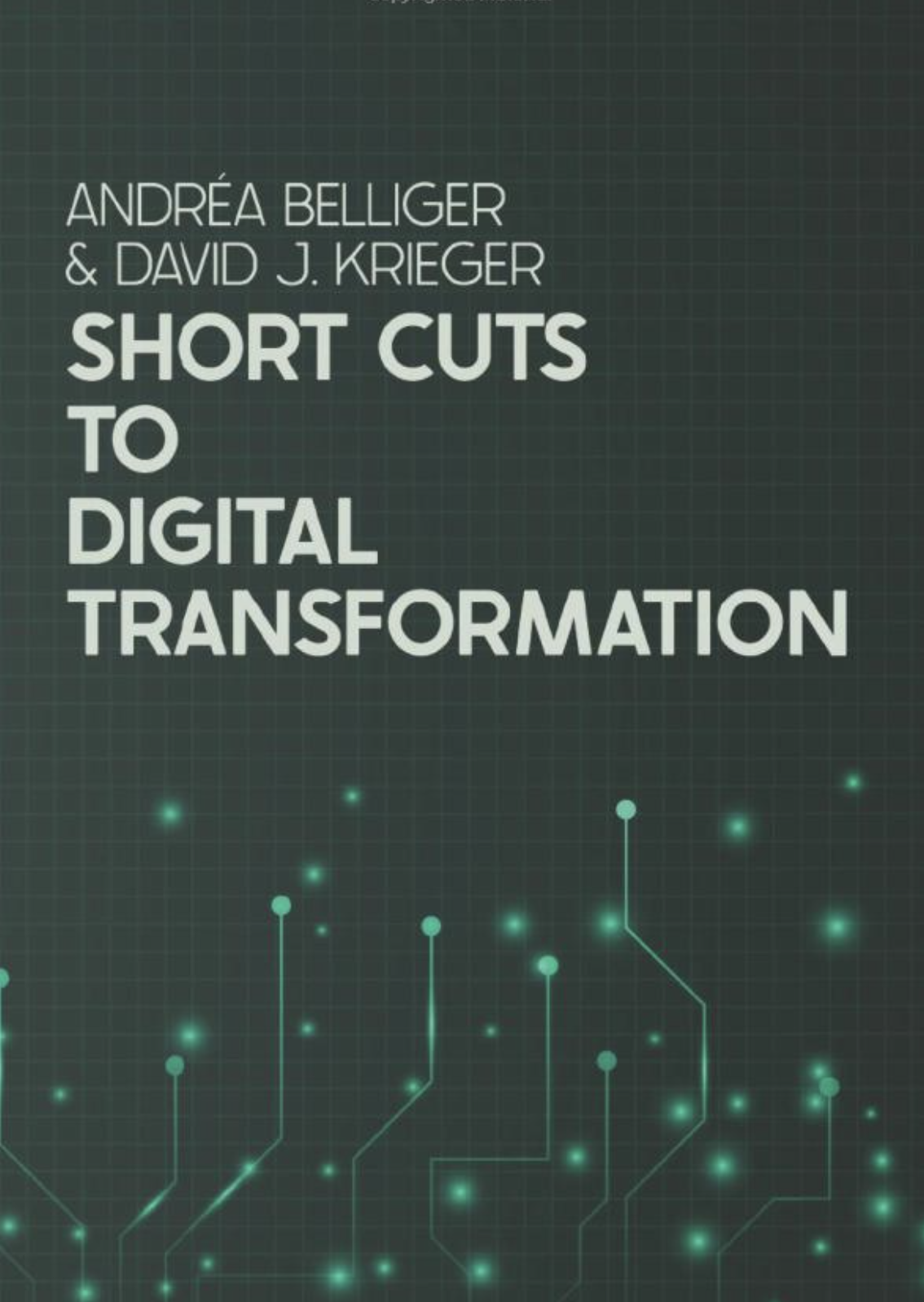
This book is a collection of short essays or thought experiments on topics that deal with the digital transformation of our world. The digital transformation is not merely the ubiquitous effects of digital technologies, but more importantly, the psychological, social, cultural, economic, and political changes that the digital revolution brings with it. The idea of the digital transformation refers to the emergence of a global network society, as well as to the demise of Western industrial society. This new social order is based on new ways of ordering knowledge, of ordering cooperative action is society, and new interpretations of the meaning of human existence. One could speak of three disruptions that the digital revolution has caused. First, the disruption of the way in which knowledge and information are produced, distributed, and used. Second, the digital transformation has disrupted the way in which cooperative action in society is organized, that is, the ways in which we live and work together. And third, there is the disruption of the way human beings understand who they are and their purpose in life. The digital transformation is revolutionary because it disrupts and transforms the traditional ways in which modern Western society has understood knowledge, social order, and human existence. It has ushered in new forms of knowing, acting, and being. The essays in this book deal with artificial intelligence, robots, self-driving automobiles, new forms work, the rise of networked organizations, and the informational self, who is connected, participatory, and networked with many diverse sources of information. The essays are written in an entertaining and provocative was that requires not technical knowledge. This book is for everyone interested in the challenges of our time and a new vision of the future.
Essays zur digitalen Transformation, Andréa Belliger and David J. Krieger, transcript Verlag, Bielefeld, 2021
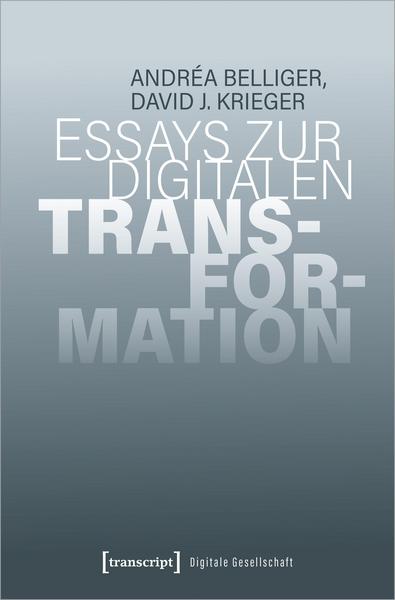
Die digitale Transformation ist revolutionär: Sie unterbricht die traditionellen Ordnungen der modernen westlichen Gesellschaft und ändert sie auf sozialer, kultureller, wirtschaftlicher und politischer Ebene radikal. Es geht dabei um die Entstehung einer globalen Netzwerkgesellschaft und den Untergang der westlichen Industriegesellschaft samt ihren Weltbildern, ihrer Politik, ihrer Ethik und ihrem humanistischen Menschenbild. Andréa Belliger und David J. Krieger beschreiben und bewerten in kurzen Reflexionen und Gedankenexperimenten die Bedeutung des aktuellen Geschehens sowohl im Hinblick auf die Vergangenheit als auch auf die Zukunft.
New Directions in Digital Ethics, Andréa Belliger and David J. Krieger, Lucerne, 2022
This paper presents digital ethics based on the assumption that digital technologies are ushering in a new form of social order, a global network society, that breaks with and transforms the values and traditions of modern Western industrial society. In the light of this assumption, digital ethics is not to be considered an "applied" ethics which simply takes over the normative assumptions of Western modernity and applies them to new technologies. Although all agree that the disruption caused by new technologies is unprecedented, none of the current treatises on digital ethics and the many guidelines for ethical or good AI, robotics, etc. question the values of Western modernity or seek new ethical principles. Based on a theory of information and the idea of networked social order, we propose new fundamental values: connectivity, flow, participation, transparency, authenticity, and flexibility. From these values of a global network society, we derive governance principles: taking account of, producing stakeholders, prioritizing, instituting, excluding, localizing and globalizing, and separating powers. When we speak of digital ethics in this paper, we are addressing the normative foundations of the global network society and are calling for a revolution in ethics comparable to the revolution in science and technology ushered in by the digital transformation.
IKF Digital Ethics Guidelines with Special Attention to AI, David J. Krieger and Andréa Belliger, 2022
The impact of new, disruptive digital technologies such as Big Data, Robotics, Internet of Things, and Artificial Intelligence (AI) on society has become so great that calls for ethical guidelines for these new technologies and also for government regulation based upon ethical principles have taken center stage. There are many proposals for digital ethics and AI guidelines. None of these proposals, however, takes the digital transformation of society seriously. It is assumed by all of them society will not fundamentally change under the impact of digital technologies. But what if society does change? What if the values of Western industrial society are no longer valid in a global network society? In order to address these questions, IKF has worked out a set of digital ethics and AI guidelines which assume that society will be deeply transformed, that values will change, and that new thinking on ethics will be necessary to addresses the problems of a changing society.
Hacking Digital Ethics, Andréa Belliger and David J. Krieger, Anthem Press, London, New York, 2021
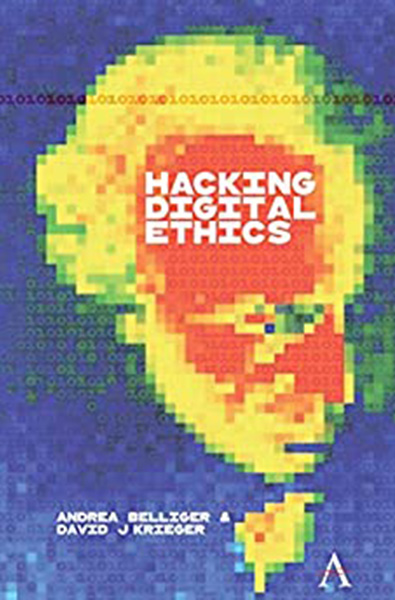
This book is not a critique of digital ethics but rather a hack. It develops an exploit kit on the basis of state-of-the-art social theory and uses it to breach the insecure legacy system upon which the discourse of digital ethics is running. It exposes the bugs, the sloppy programming, and the false promises of current digital ethics, and, because it is an ethical hack, it redesigns digital ethics so that it can address the problems of the global network society.
Network Publicy Governance. On Privacy and the Informational Self, Andréa Belliger and David J. Krieger, transcript Verlag, Bielefeld, 2018
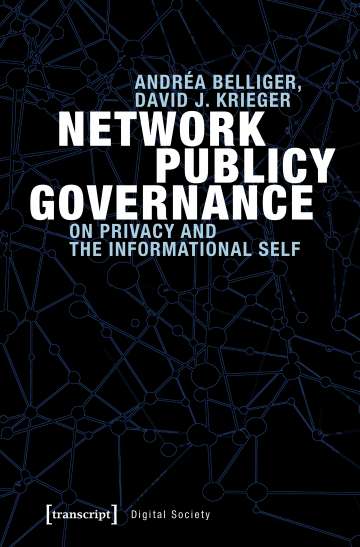
The information age has brought about a growing conflict between proponents of a data-driven society on the one side and demands for protection of individual freedom, autonomy, and dignity by means of privacy on the other. The causes of this conflict are rooted in the modern Western opposition of individual and society and a self-understanding of the human as an autonomous rational subject with an inalienable right to informational self-determination. Andréa Belliger and David J. Krieger propose a theory of information as a common good and redefine the individual as an informational self who exists in networks made up of both humans and nonhumans. Privacy is replaced by publicy and issues of data use and data protection are described in terms of governance instead of government.
Organizing Networks. An Actor-Network Theory of Organizations, Andréa Belliger and David J. Krieger, transcript Verlag, Bielefeld, 2016
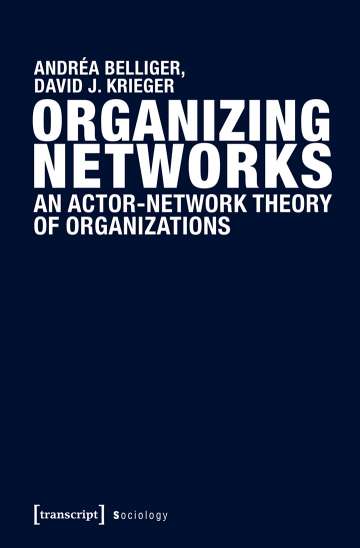
What are organizations? Where do they come from? How are they transformed and adapted to new situations? In the digital age and in the global network society, traditional theories of the organization can no longer answer these questions. Based on actor-network theory, this book explains organizations as flexible, open networks in which both human and non-human actors enter into socio-technical assemblies by constantly negotiating and re-negotiating programs of action. Organizations are not macro social structures or autonomous systems operating behind the backs of individuals. Instead, they are scalable actor-networks guided by network norms of connectivity, flow, communication, participation, authenticity, and flexibility.
Interpreting Networks. Hermeneutics, Actor-Network Theory & New Media, Andréa Belliger and David J. Krieger, transcript Verlag, Bielefeld, 2014
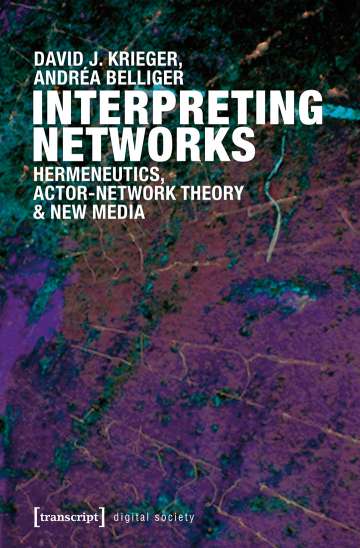
After postmodern critique has deconstructed, decentered, and displaced order and identity on all levels, we are faced with the Humpty Dumpty question of how to put the pieces back together again. This book brings together the seldom associated discourses of hermeneutics, actor-network theory, and new media in order to formulate a theory of a global network society. Hermeneutics re-opens the question of unity in a fragmented world. Actor-network theory reinterprets the construction of meaning as networking. New media studies show how networking is done. Networks arise, are maintained, and are transformed by communicative actions that are governed by network norms that make up a social operating system. The social operating system offers an alternative to the imperatives of algorithmic logic, functionality, and systemic closure that dominate present day solutions to problems of over-complexity in all areas. The world of meaning constructed by the social operating system is a mixed reality in which filters and layers replace the physical restraints of space and time as parameters of knowing and acting. Society and nature, humans and non-humans come together in a socio-sphere consisting of hybrid, heterogeneous actor-networks. This book proposes reinterpreting hermeneutics as networking and networking as guided by a social operating system whose norms are based on new media. There emerges a theory for a global network society described by different concepts than those typical of Western modernity.
Gesundheit 2.0 – Das ePatienten.Handbuch, transcript Verlag, Bielefeld, 2014
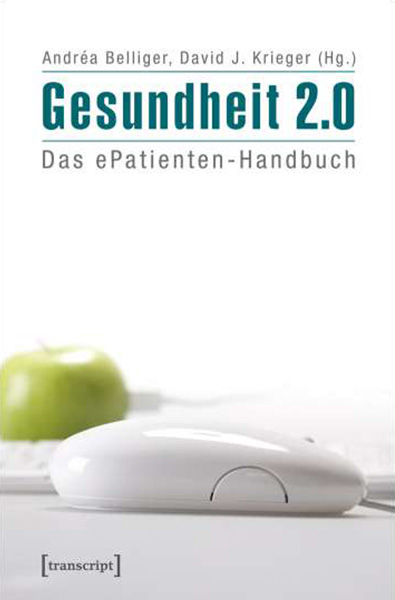
Digitale Gesundheit, ePatient, Health 2.0 – dieses Handbuch bietet Orientierung im weiten und rasant wachsenden Feld der vernetzten Gesundheit. Das Spektrum der Themen reicht von offener Kommunikation, Transparenz und Partizipation über elektronische Gesundheitsdossiers und medizinische Gesundheitsdaten bis hin zu Online-Patienten-Communities, Telemedizin oder eBeratung. Wie kann ich mich als Patient über meine Erkrankung infomieren und einen aktiven Beitrag zur Behandlung leisten? Wie schaffe ich es als Arzt, meinen Patienten zur Eigenrecherche zu ermutigen, ohne dies als Angriff auf meine Kompetenz zu werten? Fragebögen und Checklisten geben hierzu konkrete Handreichungen. Das Buch zeigt: Health 2.0 ist die Gesundheitsversorgung von morgen, in der Ärzte und Patienten die Behandlung gemeinsam und gleichberechtigt planen. Es richtet sich an Patienten und ihre Angehörigen, an Ärzte und Pflegefachleute, an Praktiker_innen in der Heim- und Krankenhausverwaltung, im Gesundheitsmanagement, in der Pharmaindustrie und in der Medizintechnik. Mit Beiträgen von Lucien Engelen und ePatient Dave deBronkart.
ANThology: ein einführendes Handbuch zur Akteur-Netzwerk-Theorie, Andréa Belliger and David J. Krieger (Editors), transcript Verlag, Bielefeld, 2006
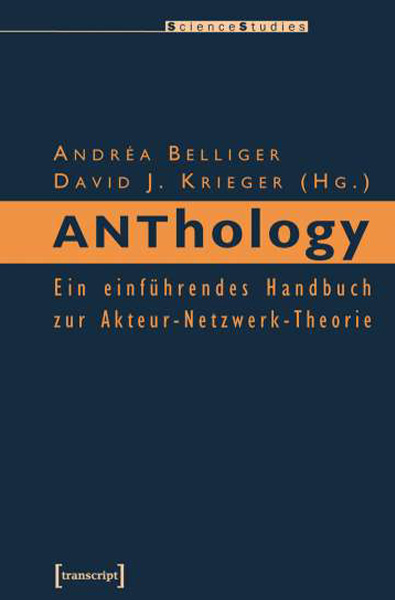
Der Band präsentiert 20 klassische Beiträge zur Akteur- Netzwerk-Theorie (kurz ANT), die zum ersten Mal gesammelt und in deutscher Sprache vorliegen. Es handelt sich dabei um Texte von Bruno Latour, John Law, Michel Callon und Madeleine Akrich, die über die letzten zwei Jahrzehnte die internationale Wissenschafts- und Technikforschung maßgeblich beeinflusst haben. Ergänzt um einen einführenden Überblicksartikel der Herausgeber bietet der Band eine umfassende Orientierung und Grundlage für das Verständnis einer der bedeutendsten neuen Sozialtheorien. Das Buch wendet sich an alle, die sich mit der Bedeutung und den Folgen von Wissenschaft und Technologie für die menschliche Gesellschaft auseinandersetzen wollen, insbesondere an Fachleute und Studierende der Soziologie, Wissenschafts- und Technikforschung und der Kommunikationswissenschaft. Es eignet sich auch als Grundlagentext an Hochschulen und Universitäten.
Ritualtheorien: Ein einführendes Handbuch, Andréa Belliger and David J. Krieger (Editors), Springer VS Wiesbaden, 1996, 5. Auflage 2013
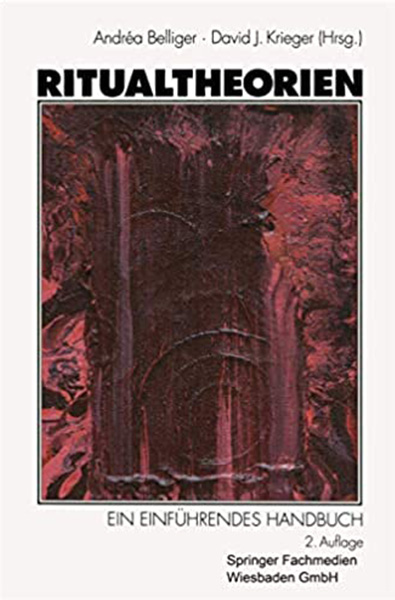
Dieser Band vereint die bedeutendsten Ansätze zur Ritualforschung und macht die wichtigsten Beiträge aus dem Forschungsgebiet "Ritual Studies" zum ersten Mal in deutscher Sprache und in einem Band zugänglich. Über zwanzig Artikel werden in zwei Kategorien aufgeteilt: "Allgemeine Ritualtheorien" und "Konkrete Studien zum Ritual in Kultur und Gesellschaft". Im allgemeinen Teil finden sich neben Klassikern der Ritualforschung wie Clifford Geertz, Victor Turner, Mary Douglas und Erving Goffman auch neuere Autoren wie z.B. der amerikanische Soziologe Albert Bergesen mit seiner Theorie der "Rituellen Ordnung" (ein Originalbeitrag zu diesem Band), Catherine Bell mit der epistemologischen Theorie der "Ritualkonstruktion", Caroline Humphrey und James Laidlaw mit der Theorie der "Rituellen Einstellung" und die umfassende Analyse des Rituals von Jan Platvoet. Im zweiten Teil finden sich Artikel über rituelles Handeln in verschiedenen Bereichen von Kultur und Gesellschaft sowie Politik, Psychotherapie, Kunst, Sport, Medien, Literatur, Theater, Recht und Feminismus. Die Herausgeber stellen den Artikeln eine umfassende Einführung in das Gebiet der Ritualforschung voran. Das Buch ist als Handbuch der Ritualforschung für Fachleute und als Basistext für alle, die das Phänomen des Rituals in Religion, Kultur und Gesellschaft näher kennenlernen wollen, konzipiert.
Lehrbuch Kultur - Lehr- und Lernmaterialien zur Vermittlung kultureller Kompetenzen, Dietmar Teichel und Claude-Hélène Mayer, Waxmann Verlag, 2011
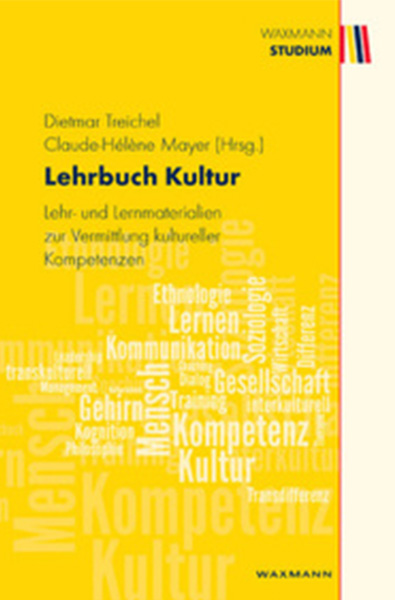
Kultur ist nicht greifbar, sagen die Einen. Es gibt einfach viel zu viele Theorien und Definitionen zur Kultur, sagen die Anderen. Dieses Lehrbuch nimmt beide Meinungen ernst und zeigt, dass der Kulturbegriff auch deshalb so spannend ist, weil er uns immer wieder zu einer Stellungnahme gegenüber unserer Wirklichkeit, unserer Entwicklung und unserem Denken und Handeln auffordert. Kultur, gerade weil sie so viele Facetten hat, lehrt uns, wie wir grundlegende Fragen zum menschlichen Leben aus unterschiedlichen Perspektiven stellen - und uns dann nicht mit der erstbesten Antwort zufrieden geben. Dieses Lehrbuch Kultur bietet dementsprechend nicht eine, sondern viele kompakte Einführungen ins Thema. Es richtet sich an Leser, die sich für die unterschiedlichen fachlichen Entwicklungen, aber auch für fachübergreifende Zusammenhänge und die praktischen Anwendungsmöglichkeiten kultureller Kompetenz interessieren. Die Beiträge wollen neugierig machen auf mehr. Fast 40 Expertinnen und Experten bieten dafür Einstiegs- und Vertiefungspunkte. Die Reflexionsaufgaben lenken den Blick immer wieder auf zentrale Fragen: Kultur als Lupe. Dieses Lehrbuch ermöglicht mit seinem systematischen Aufbau den überfachlichen Austausch auf einem hohen und dennoch auch für Novizen oder Fachfremde verständlichen wissenschaftlichen Niveau. Damit kann es sowohl für das Selbststudium als auch als Lehrmaterial für eine umfassende Einführung in die Kulturwissenschaften und -praktiken genutzt werden.
Kommunikationssystem Kunst, David J. Krieger. Passagen-Verl., Wien, 1997
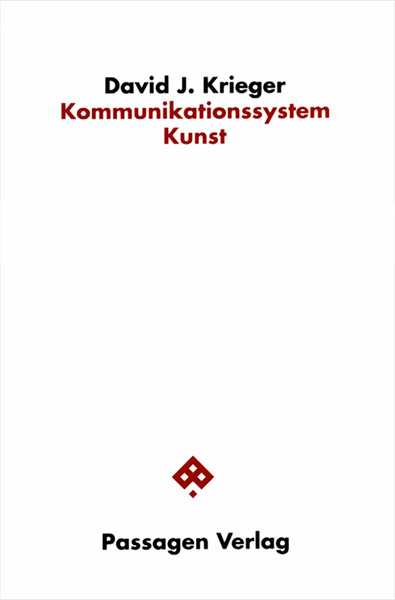
Wenn die Gesellschaft mit Habermas und Luhmann als Kommunikationssystem betrachtet werden kann, dann stellt sich die Frage: Woraus besteht dieses System? Was sind die kleinsten Einheiten von Kultur? Die Moderne antwortete auf solche Fragen sind immer subjektbezogen – mit Ideen, Wahrnehmungen, kommunikativen Handlungen, oder gar Willensentscheidungen. Postmoderne Theorien reduzieren die Äußerungen des Subjekts auf rein sprachliche Zeichen und semiotische Strukturen. Das Subjekt sei Sprache und nicht der individuelle Mensch. Und diese sprachliche Zeichensysteme konstituieren und konstruieren Kultur, die Gesellschaft und die Menschen. Diese Strukturen setzen sich aus Sinneinheiten zusammen, die Wittgenstein auch Sprachspiele nannte. Eine postmoderne Kommunikationstheorie muss folglich klären, unter welchen pragmatischen Bedingungen sich bestimmte Sprachspiele entstehen. David J. Krieger wählt als Untersuchungsgegenstand das Phänomen der Kunst. An ihr lässt sich genau jenes Innovations- und Transformationspotential darstellen, das auch der Gesellschaft als Ganzem eigen sei. Anhand des Kommunikationssystems Kunst wird eine neue Konzeption des semiotischen Konstruktivismus entwickelt.
Einführung in die allgemeine Systemtheorie, David J. Krieger, Fink/UTB, München, 1996
Ziel des Buches ist es, den Studierenden Zugang zu einem der gegenwärtig bedeutendsten wissenschaftlichen Diskurse zu geben. Die Theorie, in die der Band einführt, hat verschiedene Namen: Kybernetik, die Theorie der Selbstorganisation, Konstruktivismus oder Systemtheorie. Der erste Teil führt in die Grundbegriffe lexikonartig ein, der zweite entfaltet die Diskussion von der Kommunikation als System in der Geisteswissenschaft und der dritte wendet sich dem Konstruktivismus als Erkenntnistheorie und Weltanschauung zu.
The New Universalism: Foundations for Global Theology, David J. Krieger, Orbis Books/ Wipf and Stock Publishers, Eugene, OR, 1991
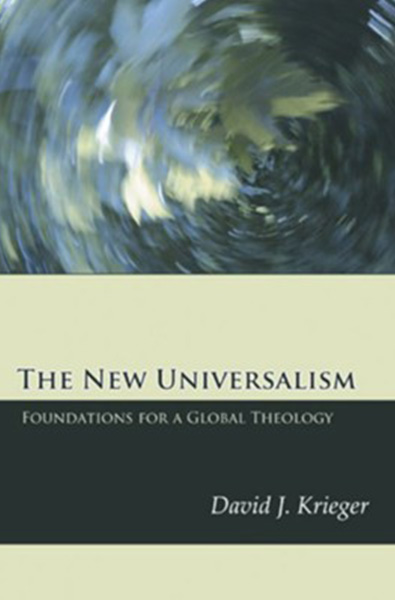
By making claims for its universal truth a religious community establishes its collective identity, orients itself in the world, and articulates its basic common convictions about what is real, meaningful, valuable. For those engaged in the search for a theology of religions in today's context of appreciation for radical plurality, the question is this: Can there be a single, unified theology that expresses adequately the apparently very different truths of humanity's religions? The New Universalism argues that theology can no longer content itself with correlating the question which the world poses with the answer given in any particular revelation. Within today's global horizon every religion and worldview has as much right to answer the basic questions of human existence as any other. The task confronting theology, therefore, lies in the integration and mutual appropriation of many seemingly conflicting revelations. Developing a new theory of communication based upon the work of Panikkar and Wittgenstein, David J. Krieger constructs a method and a philosophical foundation for resolving ideological conflicts and achieving mutual understanding among different cultures and religions.




CAS Interkulturelle Kommunikation & Transkulturelle Kompetenzen
course referring to research
more informationWir sind für Sie jederzeit unter info@ikf.ch per E-Mail oder telefonisch unter +41 41 211 04 73 erreichbar. Oder buchen Sie einen Beratungstermin! Wir freuen uns auf Ihre Kontaktaufnahme.
Ihr IKF-Team
Jetzt Termin buchen